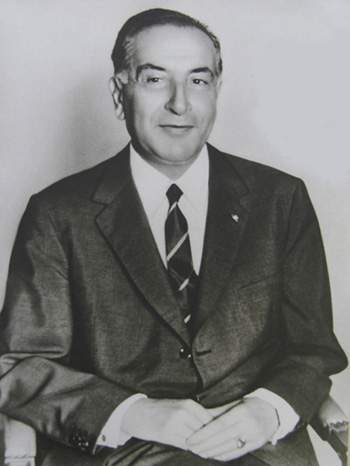Biography
1902-1921
Childhood and Youth
Fouad Abdallah Chehab was born on March 19, 1902, in Ghazir (Kesrwan, Lebanon), to a Christian Maronite family. He was the eldest son of Emir Abdallah Chehab and Sheikha Badiaa Hbeich. His family was of noble ancestry – His great-grandfather was no other than the eldest brother of the Great Emir Bachir II, ruler of Mount Lebanon from 1788 to 1840. In 1907, due to poverty, Emir Abdallah left the country like many Lebanese to look for work opportunities abroad. The family never heard back from him. It is believed that he probably died on the ship transporting him from Marseille to North America. Fouad and his two younger brothers, Farid and Chakib, were thus raised by their mother and maternal uncles, in Jounieh.
In 1916, when Fouad Chehab was just 14, due to financial needs, he had to leave school and work at the Jounieh Court to help support his family.
In 1919, he enlisted for one year in the French Army as a soldier – before the French Mandate was proclaimed over Lebanon in 1920 following World War I.
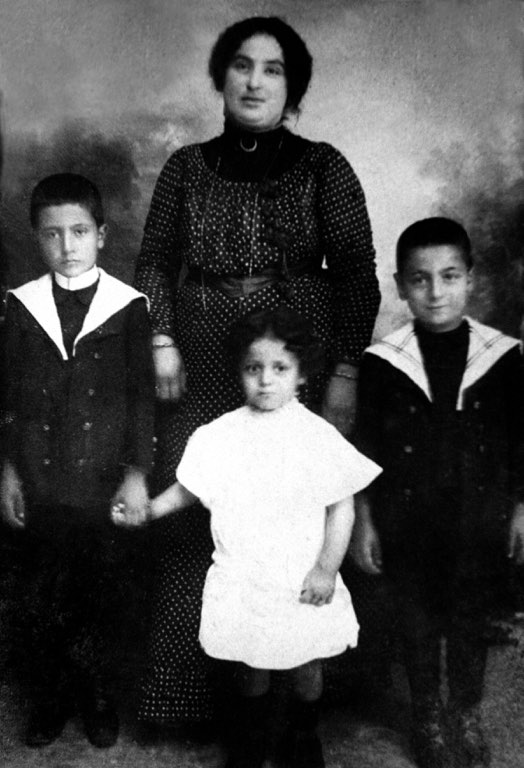
1921-1946
Early Military Career
In December 1921, Fouad Chehab joined the French Military School in Damascus. His noble title of Emir helped him be selected, according to an old tradition that the French perpetuated for army officers. On July 20, 1923, he graduated from the Military School as a Lieutenant.
In 1926, he married Rose Renée Boittiaux (1904-1992), the daughter of a French officer in service in Lebanon. They lived together in harmony but did not have children.
In 1929, Fouad Chehab earned the grade of Captain, and was put in charge of the Rashaya casern from 1930 to 1936. During that period, he simultaneously followed military courses in France and graduated from the École Supérieure de Guerre in Paris.
In 1937, he was named Lieutenant Colonel and served in many top military posts in the ‘Troupes du Territoire du Liban’ of the French Army. In 1942, as French troops in Lebanon came under the Free French Government led by General Charles De Gaulle, he was named Commander of the Lebanese Contingent in the ‘Forces Françaises Libres au Levant’, which became the nucleus of the future Lebanese Army. In 1944, he became a Colonel and later a Brigadier General whose task was to organize all the Lebanese troops. In 1946, the Lebanese troops became the official Lebanese Army body, and the government chose him as Commander in Chief of the Army, giving him the title of Division General.
In 1949, he became the first Lebanese officer to earn the grade of Army General (Liwaa’).
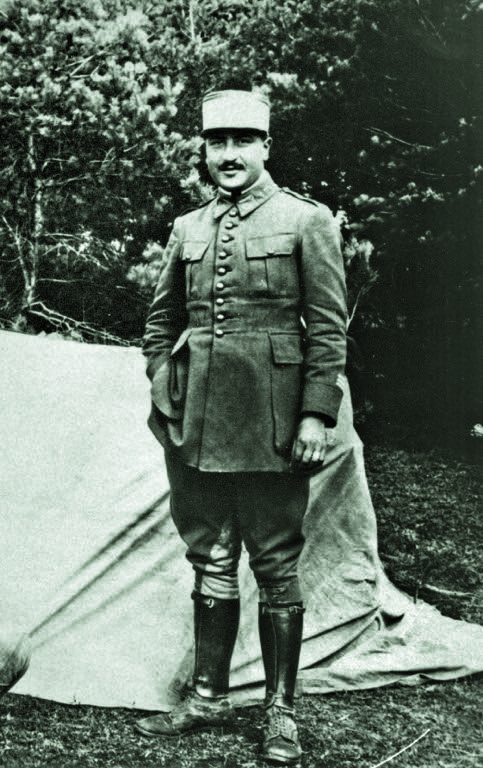
1946-1958
Army Command
From 1946 to 1958, Chehab dedicated himself to building the Army based on high values of discipline, efficient organization, ethics and national loyalty. He gradually reorganized and reinforced the various troops (Infantry, Artillery) and departments (Headquarters, Administration, Engineering, Communication and Intelligence), based on modern principles, and later created the Navy and Air Forces. He built Army caserns in all parts of the country, raised the level of studies in the Military School and sent young officers to French and English Military Academies to enhance their experience and military knowledge.
General Chehab served as Army Commander with President Bechara El Khoury (1946-1952) and President Camille Chamoun (1952-1958), for a total of 13 years.
In 1952, a strong political opposition was putting pressure on President Bechara El Khoury to resign after he had renewed his mandate. Chehab refused to take sides and refused any Army involvement in this political confrontation. When El Khoury was forced to resign, Chehab was appointed Prime Minister tasked to organize and secure the election of a new president. Turning a deaf ear to opinions that wanted to see him run for the Presidency, Chehab, strongly against any Army interference in public life, focused on completing his emergency mission diligently and without delay. Four days later, Camille Chamoun was elected to succeed El Khoury.
In November 1956, he was named by President Chamoun as Minister of Defense, in addition to his Army Commander responsibilities. He resigned the ministerial post four months later, preferring to focus on his Army duties, away from the world of politics.
Towards the end of the Chamoun Mandate, following the stern Canal of Suez confrontation between Egypt’s Abdel Nasser and the Western world, the Lebanese politicians and public became sharply divided between a pro-American camp headed by Chamoun, and a pro-Arab camp grouping the majority of Muslim politicians and leaders. This led to a strong uprising against the re-election of Chamoun. Known as the Crisis of 1958, armed clashes started on the streets and Chamoun called upon the US Marines to block the uprising of the pro-Nasser movement. Like in 1952, Chehab, as Commander of the Army, refused to allow the military to intervene, especially in the clear presence of foreign interferences. He simply prevented both the opposition and the government partisans from overtaking locations of strategic importance, such as airports and government buildings, and kept the Army well united and unaffected by the severe political division in the country.
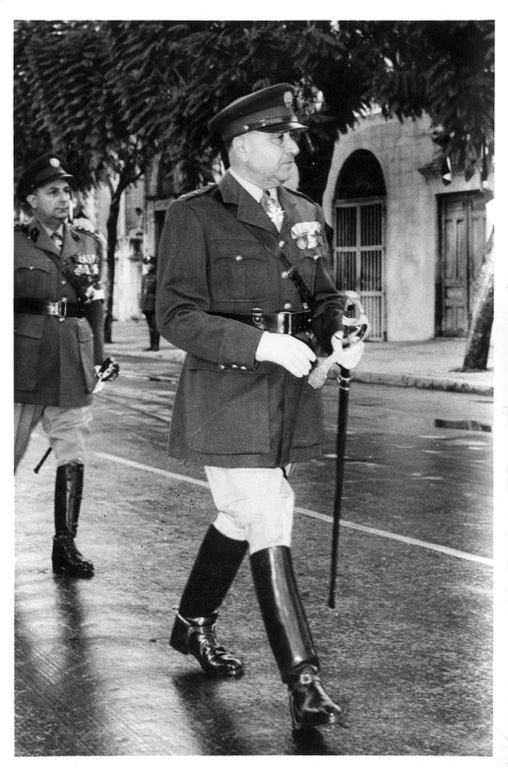
1958-1964
Presidency
As the 1958 crisis deepened and the Chamoun mandate neared its end, Chehab was chosen as the consensus presidential candidate to succeed Chamoun in a salvatory mission to reestablish unity and peace in a country facing an existential threat. He was widely trusted by the Muslims for his impartiality and accepted by both the US and Nasser for his integrity. He was elected by the Lebanese Parliament on July 31, 1958, for a 6-year presidential mandate.
During the first two years in office, Chehab strove to cool down the tensions. He gained the trust of both camps by ensuring that the doubts and fears of all the Lebanese fractions are taken into consideration. He formed consensus governments in which all the country’s political components were represented, and followed the path of moderation, cooperating closely with the different confessional groups. He succeeded in his task and brought back a firm stability to the country.
In July 1960, two years into his mandate, following the June parliamentary elections, Chehab presented his resignation seeing that the country had been democratically stabilized, having paved the way for reforms and believing that as a military man, he had fulfilled his duty towards his country when it was facing an emergency situation. He was persuaded by the Members of the Lebanese Parliament to remain in office, and decided to dedicate the rest of his term for administrative reforms and state modernization.
In 1961, the Army suppressed an attempted military coup by the Syrian Social Nationalist Party. To avert such future threats and hinder foreign interferences in internal affairs, Chehab strengthened the Lebanese intelligence and security services.
Chehab’s rule was a delicate balancing act of maintaining harmony between the nation’s Christian and Muslim components. He followed the path of dialogue and moderation coupled with public reforms and balanced Arab and international relations, which came to be known as Chehabism. Generally deeply respected for his honesty and integrity, Chehab is credited with a wide range of reform programs and regulations towards creating a modern administration, efficient public services and social justice. This eventually brought him into conflict with the traditional feudal, confessional, and clan-based politicians, who felt that their grip on power as mediators between the state and the people was diminishing. Chehab’s term in office also brought an era of economic prosperity, social development and infrastructure projects in healthcare and education across the country, especially in the neglected remote areas.
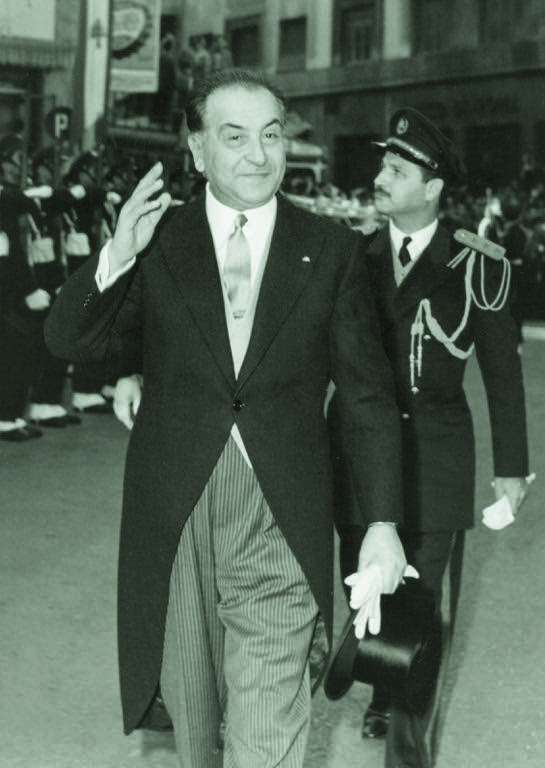
1964-1973
Last Years
In 1964, Chehab, whose continuing role as the head of the country was seen by many as the best option for stability and future reforms, categorically refused to allow any amendments to the Constitution to permit him to run for a second presidential term. Instead, he backed the candidacy of Charles Helou, a diplomatic figure, who was elected as President. Chehab later became dissatisfied with Helou’s mishandling of the armed presence of Palestinian guerrillas in Southern Lebanon as well as Helou’s maneuvers to pave the way for the traditional feudal politicians to regain power.
Chehab was expected to run for the presidential election of 1970 which the constitution allowed, but in a historical declaration he explained that his experience in office convinced him that the people of his country were not ready to put aside feudal traditional politics and support him in building a modern state. He chose instead to endorse the candidacy of his protégé, Elias Sarkis. Sarkis lost to the feudal leader Suleiman Frangiyeh by a single vote. This marked the end of the Chehabist era and reforms.
The first months of the Frangiyeh mandate saw the dismantling of the country’s intelligence and security services built by Chehab. These services were feared and accused of having kept a strong hold on political life during the Helou mandate. But the dismantling of the ‘Deuxième Bureau’ allowed increased foreign interferences in the internal affairs of the country, soon to be manifested in the Palestinian military presence in 1973 and the start of the civil war in 1975.
Fouad Chehab passed away at his home in Jouniyeh, Lebanon, on April 25, 1973, from a sudden heart attack. He was 71 years old.
